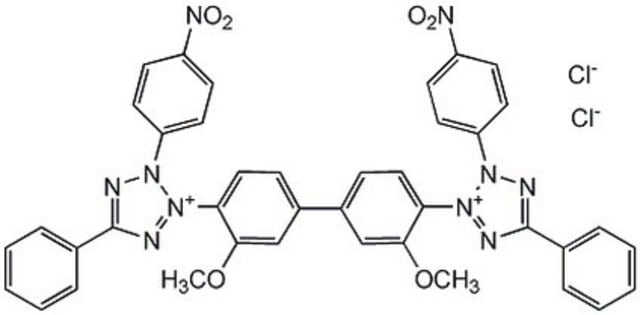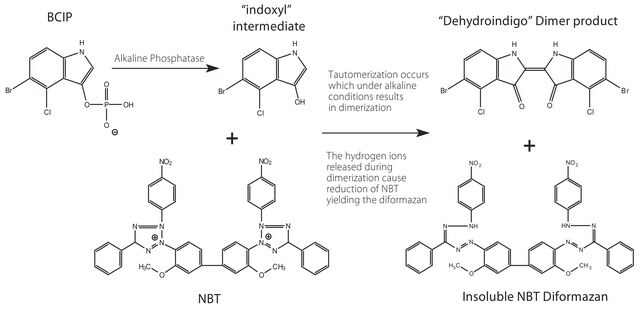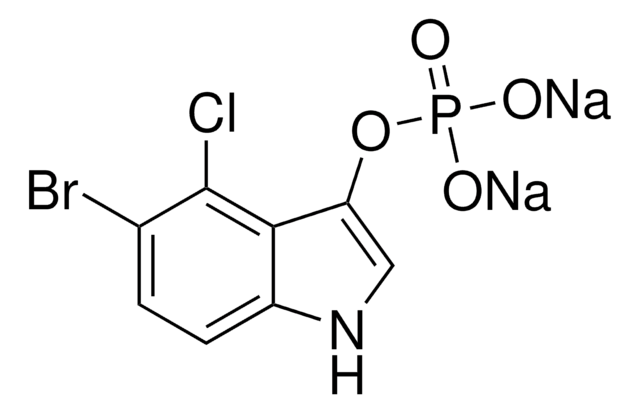11383213001
Roche
NBT
4-Nitro blue tetrazolium chloride, solution
Synonym(s):
Nitroblue tetrazolium chloride
About This Item
Recommended Products
Quality Level
Assay
>95%
form
solution
mol wt
Mr 817.7
packaging
pkg of 3 mL (300 mg)
manufacturer/tradename
Roche
technique(s)
Northern blotting: suitable
Southern blotting: suitable
hybridization: suitable
storage temp.
−20°C
General description
Application
- Immunohistocytochemistry
- Western blot
- Southern blot
- Northern blot
- Colony and plaque hybridization
- In situ hybridization
Physical form
Note: The color does not impair the quality or the function of the reagent. In some cases a precipitate may occur which is easily brought into solution by briefly warming the substrate at 37 °C.
Preparation Note
- Always prepare this solution fresh shortly before use!For all applications except DIG System: Add 50 μl NBT solution and 37,5 μl BCIP to 10 ml 0.1 M Tris-HCl, pH 9.5 (20 °C), 0.1 M NaCl, 0.05 M MgCl2.
- For DIG System applications: Add 50 μl NBT solution and 37,5 μl BCIP to 10 ml 0.1 M Tris-HCl, pH 9.5 (20 °C), 0.1 M NaCl
- Note: Do not include MgCl2 in the DIG detection buffer as this might lead to spotty background on the membrane after the detection procedure. Alkaline Phosphatase does not require Mg2+.
Other Notes
Signal Word
Danger
Hazard Statements
Precautionary Statements
Hazard Classifications
Acute Tox. 4 Inhalation - Eye Irrit. 2 - Repr. 1B
Storage Class Code
6.1C - Combustible acute toxic Cat.3 / toxic compounds or compounds which causing chronic effects
WGK
WGK 2
Flash Point(F)
167.0 °F
Flash Point(C)
75 °C
Regulatory Listings
Regulatory Listings are mainly provided for chemical products. Only limited information can be provided here for non-chemical products. No entry means none of the components are listed. It is the user’s obligation to ensure the safe and legal use of the product.
EU REACH SVHC Candidate List
EU REACH Annex XVII (Restriction List)
Choose from one of the most recent versions:
Already Own This Product?
Find documentation for the products that you have recently purchased in the Document Library.
Customers Also Viewed
Protocols
There are several counterstains possible in combination with BM Purple (or NBT/BCIP in general), including FastGreen FCF and Nuclear Fast Red.
Our team of scientists has experience in all areas of research including Life Science, Material Science, Chemical Synthesis, Chromatography, Analytical and many others.
Contact Technical Service









